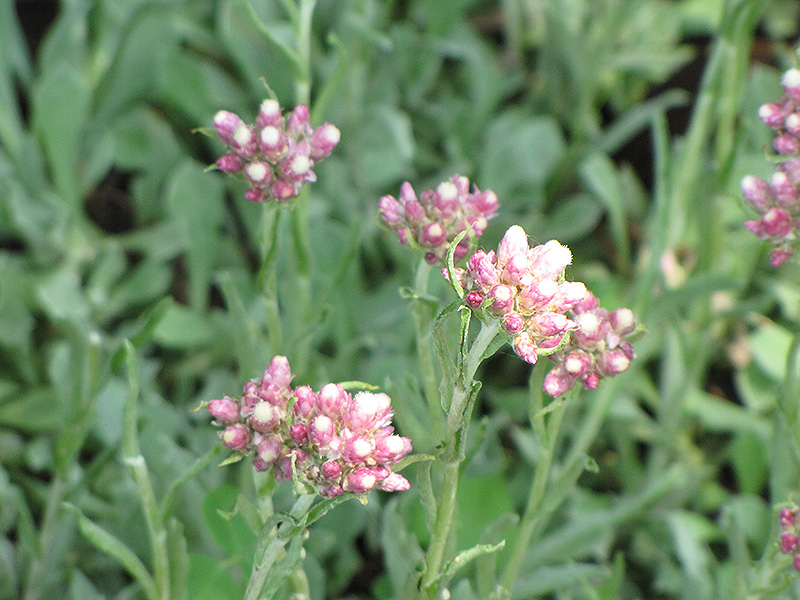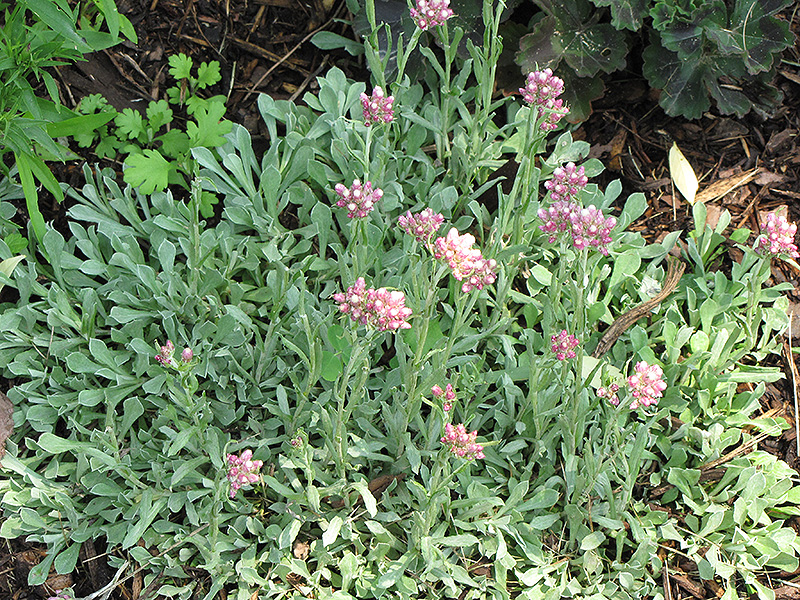* This is a "special order" plant - contact store for details
Plant Height: 3 inches
Flower Height: 8 inches
Spread: 12 inches
Sunlight:
![]()
Hardiness Zone: 1a
Other Names: Pussy Toes, Pussy-Toes
Description:
A dainty mat-forming perennial that creates a beautiful airy groundcover with its silvery blue-green leaves and the delicate looking rosy flowers above; this one is extremely cold hardy and vigorous and likes dry open places, meadows and open woods
Ornamental Features
Rosy Pussytoes has balls of rose flowers at the ends of the stems from late spring to early summer, which emerge from distinctive purple flower buds, and which are interesting on close inspection. Its attractive tiny tomentose narrow leaves remain bluish-green in color with distinctive silver edges throughout the year.
Landscape Attributes
Rosy Pussytoes is an herbaceous evergreen perennial with an upright spreading habit of growth. It brings an extremely fine and delicate texture to the garden composition and should be used to full effect.
This is a relatively low maintenance plant, and should not require much pruning, except when necessary, such as to remove dieback. Deer don't particularly care for this plant and will usually leave it alone in favor of tastier treats. It has no significant negative characteristics.
Rosy Pussytoes is recommended for the following landscape applications;
- Mass Planting
- Rock/Alpine Gardens
- Border Edging
- General Garden Use
- Groundcover
- Naturalizing And Woodland Gardens
Planting & Growing
Rosy Pussytoes will grow to be only 3 inches tall at maturity extending to 8 inches tall with the flowers, with a spread of 12 inches. Its foliage tends to remain low and dense right to the ground. It grows at a medium rate, and under ideal conditions can be expected to live for approximately 5 years. As an evegreen perennial, this plant will typically keep its form and foliage year-round.
This plant should only be grown in full sunlight. It prefers dry to average moisture levels with very well-drained soil, and will often die in standing water. It is considered to be drought-tolerant, and thus makes an ideal choice for a low-water garden or xeriscape application. It is not particular as to soil pH, but grows best in poor soils. It is highly tolerant of urban pollution and will even thrive in inner city environments. This species is native to parts of North America. It can be propagated by division.
* This is a "special order" plant - contact store for details






